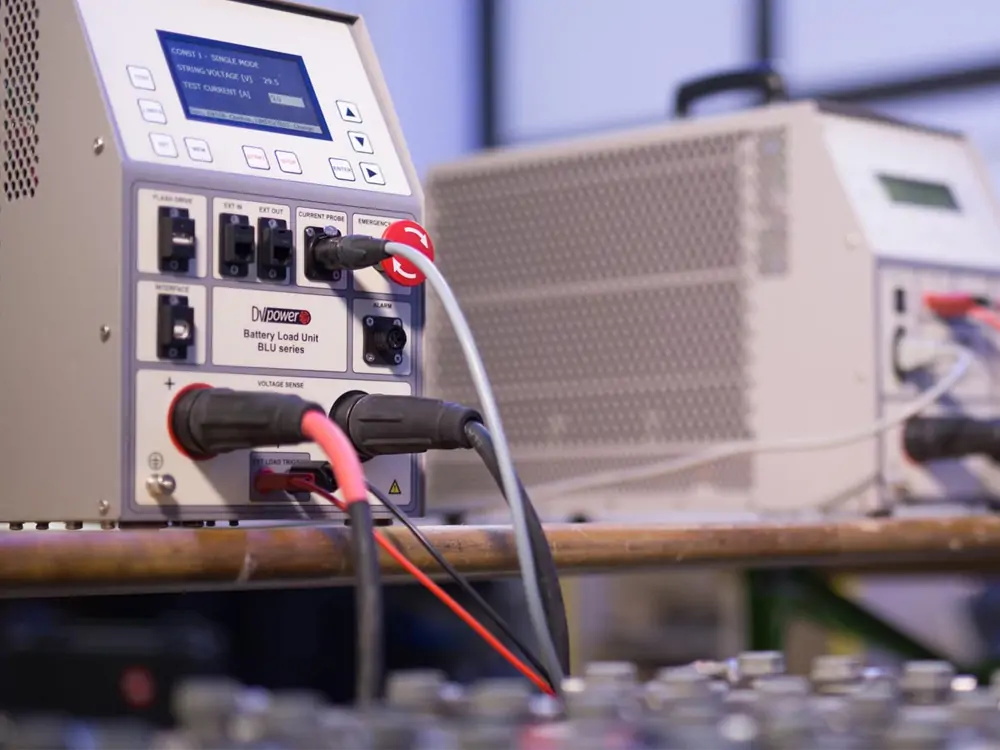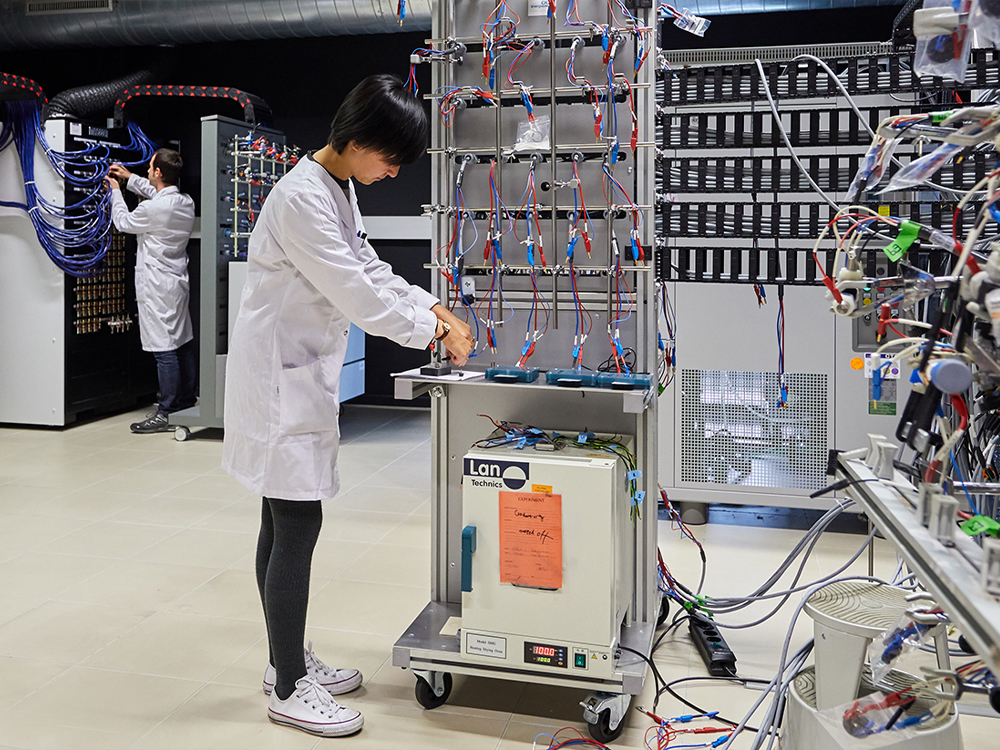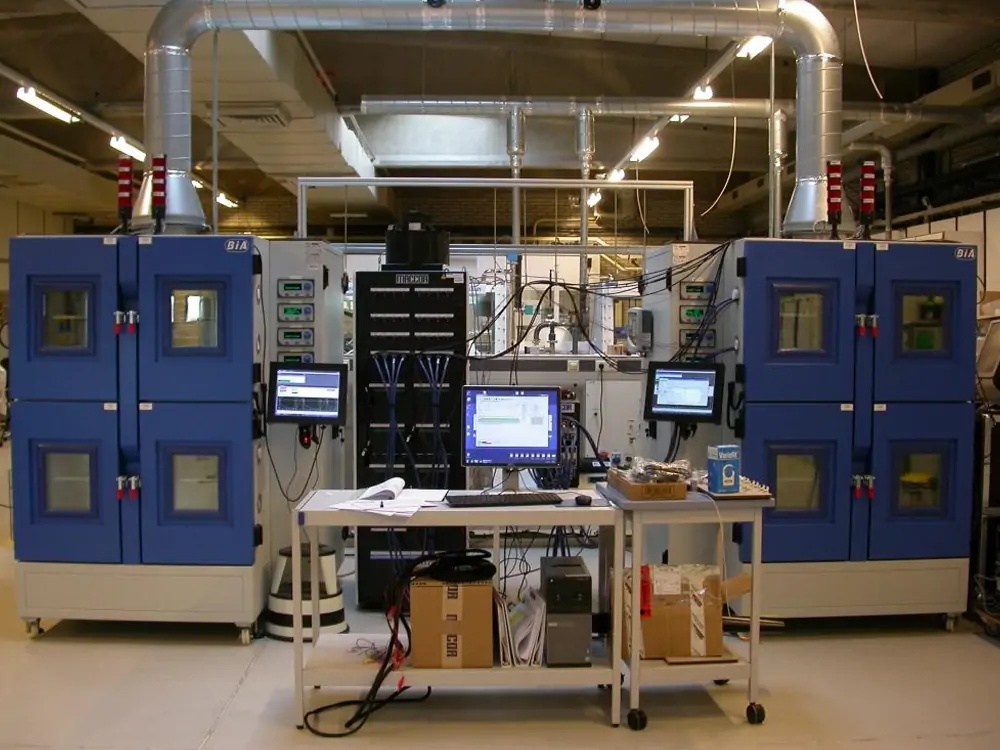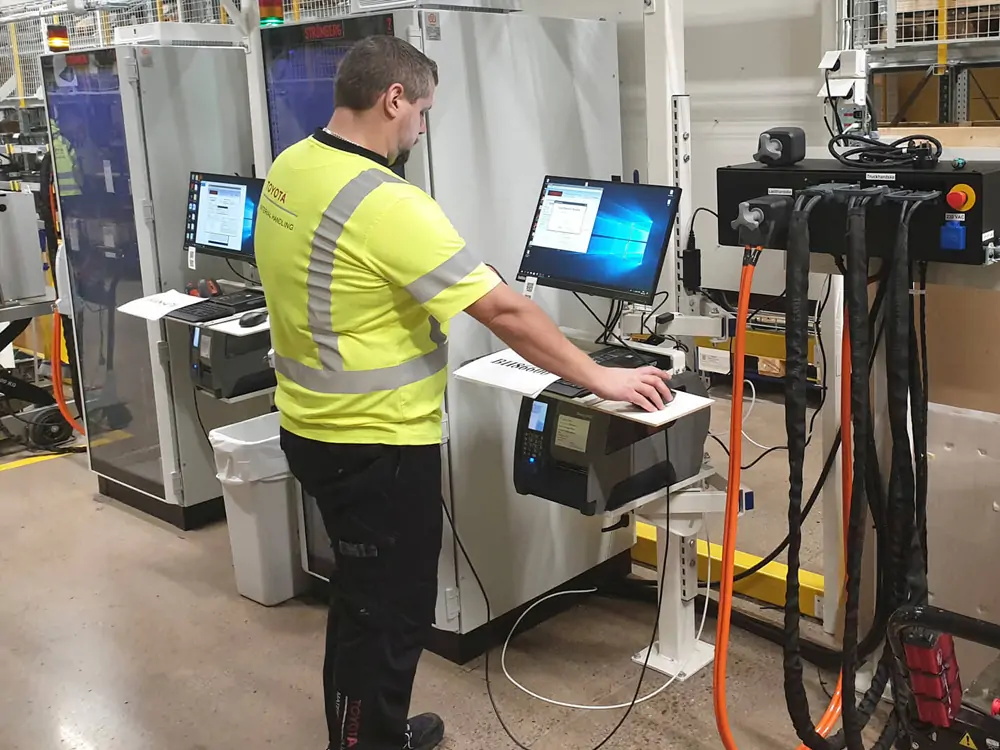Battery testing equipment is a must-have for evaluating the health and performance of batteries in a variety of uses. Batteries play an important part in powering our contemporary world. It is used in vehicles and boats industrial equipment and renewable energy systems. Batteries, like any other piece of equipment, can fail or deteriorate over time. It can result in significant delays, decreased output, and increased expenses. Battery test equipment aids in the prevention of these problems by giving precise and dependable measurements of battery performance. Such as capacity, internal resistance, and overall health.
What is Battery Testing Equipment?

Battery test equipment includes a variety of instruments and methods used to assess the efficiency and health of batteries. These devices can be built to test a wide range of batteries. From small button cells to big industrial batteries. Battery analyzers, battery cyclers, battery testers, and battery formation tools are some of the most prevalent battery tester machines.
Battery analyzers can check a battery’s volume, internal resistance, and overall condition. These devices are usually intended for small to medium-sized batteries. They can provide comprehensive information on battery performance. These include the ability to identify weak cells and possible flaws. Battery analyzers are capable of testing battery production efficiency. As well as maintenance and repair of battery-powered machinery.
Battery cycles are instruments that use charge and recharge cycles to check the efficiency of batteries over time. These devices are usually intended for bigger batteries. They can provide data on battery volume, internal resistance, and other factors influencing battery life and efficiency. Battery cycles are frequently used in the testing and upkeep of industrial batteries. As well as the creation and testing of battery-powered cars and renewable energy sources.
Battery meters are tools for measuring battery voltage, current, and volume. These devices are usually intended for small to medium-sized batteries. They can provide fast and precise battery performance measurements. Battery testers are used in the upkeep and repair of battery-powered devices and the testing and selection of new batteries.
Battery formation machinery prepares fresh batteries by cycling them through charge and discharge. So that can determine capacity and performance. This machinery is commonly used in the production of batteries and the testing and upkeep of battery-powered equipment.
Why is Battery Testing Equipment Important?

Battery capacity testers are essential for ensuring the highest performance and durability of batteries for various uses. Batteries are used in many sectors, such as automobiles, aerospace, telecoms, and green energy. Batteries are frequently used to power essential tools and systems. Such as emergency backup systems and medical devices. As a result, it is critical to keep batteries in top shape at all times to avoid downtime, cut expenses, and boost productivity.
The automatic battery tester contributes to this aim by giving precise and consistent readings of battery performance. Battery testing machines can check critical factors such as capacity, internal resistance, and health. They can help identify possible defects and problems before they become serious. It enables proactive maintenance and repair. It can help to avoid expensive downtime and machine harm.
Battery test equipment is also necessary for developing and evaluating novel battery technologies. Demand for renewable energy and electric vehicles is growing. This need for high-performance, reliable batteries is more important than ever. Battery tester machines are necessary to create and test these new technologies. Because they enable researchers and makers to check the performance and features of new battery materials and designs.
Types of Battery Testing Equipment

There are several kinds of battery tester machines accessible. Each is tailored to particular requirements and applications. The most commonly used types include battery testers, battery analyzers, battery chargers, and battery monitors. Each type of equipment has its unique features and functions.
Battery Testers
The most fundamental type of battery test equipment is the battery tester. They are intended to evaluate a battery’s voltage and identify whether it is filled or discharged. These testers are usually portable devices that use a basic voltmeter to determine the voltage of a battery.
Battery testers are frequently used to evaluate car batteries. They can attach to the battery terminals and measure the voltage. This measurement can then be compared to the manufacturer’s specs. It can determine whether the battery is still in good working order or needs to be changed.
Battery Analyzers
Battery analyzers are more sophisticated than battery testers. They provide a more thorough study of a battery’s function. These analyzers are usually used in the manufacturing process. It can check for defects and ensure that batteries meet the necessary specs. Battery testers can measure a battery’s capacity, voltage, internal resistance, and temperature, among other things. These instruments can also discharge checks. They can indicate how long a battery can run before it needs to be recharged.
Battery Chargers
Battery chargers are used to replenish previously depleted batteries. They are intended to deliver a regulated current to the battery, filling it at the proper rate and voltage. There are several kinds of battery chargers accessible, each tailored to particular requirements and applications. Some adapters are made to work with specific battery chemistries, such as lead-acid or lithium-ion. Other charges are made to work with specific battery voltages or sizes.
Battery Monitors
Battery meters track the efficiency of batteries over time. These sensors can measure a battery’s various characteristics. Such as voltage, capacity, and internal resistance, provide real-time performance statistics. Battery meters are usually used in applications that rely heavily on batteries. Such as reserve power systems or green energy systems. They can assist in ensuring that batteries work as anticipated. They can also notify operators of any problems before they become critical.
How Does Battery Test Equipment Work?

Battery testing equipment measures different parameters of a battery and provides statistics on its function. Some of the most prevalent factors evaluated by battery testing tools are as follows:
Capacity
Battery capacity is the amount of energy that a battery can hold. Battery testing apparatus determines the capacity of a battery by discharging it at a regulated rate and monitoring how long it takes to obliterate it. The discharge duration multiplied by the discharge rate yields the capacity.
Voltage
Battery voltage is a measurement of the electrical potential difference between the electrodes of a battery. A voltmeter or other similar instrument is used in battery testing tools to determine the voltage of a battery.
Internal Resistance
Internal resistance measures the impedance to the current passage within a battery. Battery testing tools determine a battery’s interior resistance by detecting the voltage decrease across the battery while a known current flows through it.
Temperature
The temperature of a battery can have a significant effect on its performance and safety. A thermocouple or other similar instrument is used in battery testing tools to detect the temperature of a battery.
Efficiency of Charge/Discharge
A battery’s charge/discharge efficacy is the amount of energy that can be used before it needs to be refilled. A battery’s charge/discharge efficiency is measured by discharging the battery at a given pace and determining how much energy is used. Most battery testing tools employ one of two testing methods: load testing or resistance testing. Load testing entails slowly draining the battery and monitoring its voltage and capacity. This technique is frequently used to test automotive batteries and other fast-discharge rate batteries.
Impedance testing includes detecting the battery’s internal resistance. Using data to determine its capacity, voltage, and charge/discharge effectiveness. This technique is frequently used to evaluate batteries in backup power and renewable energy devices.
Benefits of Battery Testing Equipment
The use of battery diagnostic tools has several advantages.
- Increased Safety: Battery testing equipment can uncover any defects or issues that may pose a safety risk. This helps ensure safe battery use.
- Improved Reliability: By testing batteries frequently, the battery tester machine can assist in identifying any issues that may cause the battery to fail early. It can help to improve the battery’s general reliability and reduce the risk of unexpected breakdowns.
- Savings: By detecting problems early on, battery testing tools can help to avoid premature battery failures, lowering the need for costly replacements.
- Better Performance: The auto battery tester can assist in identifying any problems that may influence a battery’s performance. Such as decreased capacity or increased internal resistance. By spotting these problems, operators can take remedial action.
Conclusion
Ultimately, battery testing equipment is critical in assuring the safety and reliability of batteries used in various sectors. These instruments include battery testers, analyzers, charges, and monitors. They can aid in identifying any flaws or issues that may cause the battery to fail early. Operators can improve battery performance, reduce the risk of surprise breakdowns, and save money by using battery testing tools frequently. The demand for batteries is increasing. Battery capacity testers are becoming increasingly important for maintaining the safety and reliability of critical components.
OTS is a professional battery test equipment manufacturer. Do you want to buy industrial battery testing equipment? Would you like to learn more about battery test equipment? OTS has professionals to answer your questions.